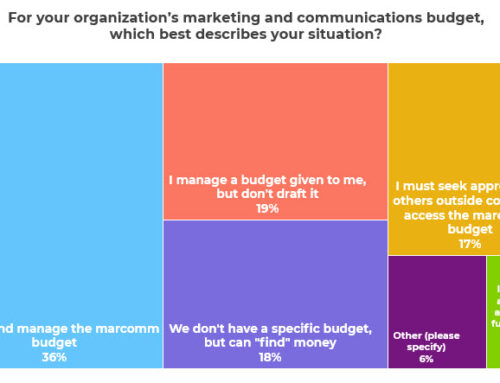
Do you feel like the people your nonprofit serves block you from using traditional marketing and fundraising messages?
I’m coming off of my Spring speaking schedule, which means I’ve talked to hundreds of nonprofit communicators and fundraisers over the last few months, trying my best to help them work through their toughest nonprofit communications, marketing, and fundraising challenges.
There’s usually one person in the room who sits quietly, often with what appears to be a look of disdain on his or her face. Several hours into the workshop that person usually can’t contain themselves anymore, and bursts out with a question along the lines of, “But we do the dirty work of society that no one wants to see, and we help the people that no one wants to help. None of this will work for us! What are we supposed to do?”
This often comes right after I’ve used an example from a humane society (“But it’s soooo easy to raise money for innocent animals!”) or advocated showing people what happens behind the scenes (“Like people really want to see a little kid covered in bruises. And we would never violate our clients’ privacy like that anyway!”)
The look I see isn’t disdain, it’s sheer frustration.
These communications and development directors work for agencies that help abusive and neglectful parents keep their children by teaching those parents the right ways to deal with frustration and anger. They help cold-blooded killers about to be paroled get ready for life back on the streets. They help people who should have known better, who have made terrible decisions most of us would never make, and who may not really deserve a second, third, fourth, or twentieth chance, but are offered one anyway.
So how do they market or fundraise for these programs, when their clientele, in many people’s eyes, is not worthy or deserving of help?
Here are a few ideas we usually discuss in these situations, and I would love for you to share your experiences and ideas too, in the comments.
1. Focus on Hope and Redemption
You can’t erase the past, but you can change the future. Many clients will never turn their lives around. But enough will that you can build your messaging around the concepts of bringing hope into hopeless situations and offering ways for people to redeem themselves.
2. Focus on Small Victories
No one expects you to perform complete personality and lifestyle makeovers on the clients you serve. What they do expect is some sort of incremental progress in the right direction. Focus on the small victories and the little steps forward, away from the dark and into the light.
3. Focus on the Indirect Beneficiaries
The benefits to the children and families of the people you work with (rather than the benefits to the clients themselves) may be easier to talk about. Same goes for benefits to the community at large. For example, if a father has been in prison for a long time, your counseling of that man can increase the likelihood of a more successful family life and employment, which benefits his children, and decrease the odds of future crimes, which benefits the community as a whole.
Of course, not all of these suggestions will be appropriate in every situation, but I hope these are good conversation starters for how to talk about the value of the difficult work you do. And thank you for doing it – I know it’s not easy.
Please share your ideas in the comments. Reading this in your inbox? Click over to the blog to add comments.






